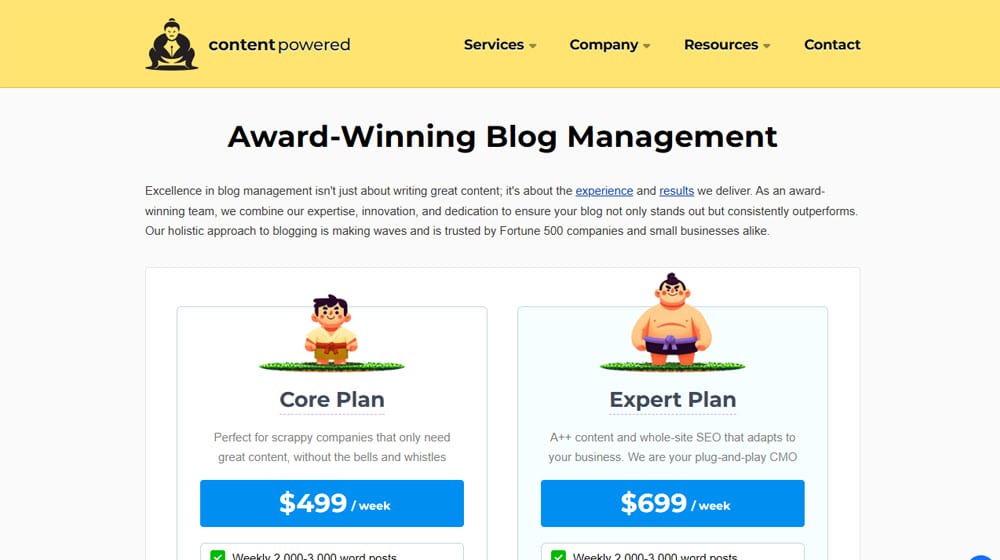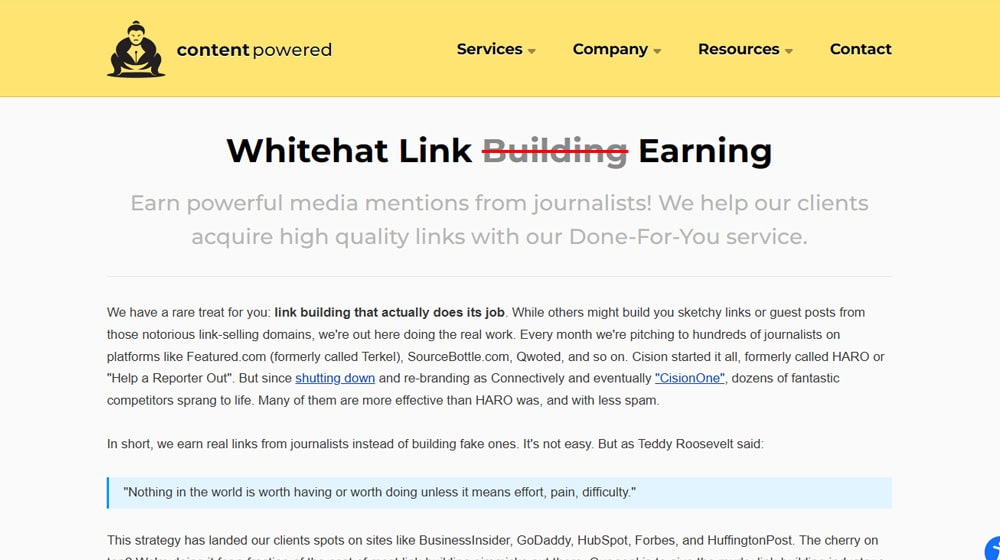What is MaaS (Marketing as a Service) And Does It Work?

Over the years, as the internet has gotten more and more prevalent and the world's commerce has grown interconnected, we've seen the emergence of a new service model: the -aaS model. -aaS stands for "As A Service," and it's not actually a new concept, just a new twist on an old classic.
Something under the -aaS business model is simply something outsourced. It started as a trending branding for web apps. Something you used to have to buy, install on your own computer or server hardware, and run locally was now something that someone else set up and allowed you to access via an internet interface.
Compare Microsoft Word with MS Word 365. MS Word is a local program you install and run on your computer. Word 365 is a cloud-based version, accessed through a website with none of the app functions happening on your local machine.
Over time, many other things have been offered "as a service," from banking and IT services to various kinds of criminal activities.
It should not come as a surprise that Marketing as a Service exists. How does it work, and is it effective?
 30 Second Summary
30 Second Summary
You can outsource your marketing work using Marketing as a Service (MaaS), which lets you pay for only what you need. You'll get expert help without hiring full-time staff, saving money on salaries and benefits. You can choose between full-service providers who handle everything, or specialists for specific tasks like content or social media. While you'll have less direct control, you'll benefit from professional expertise and up-to-date industry knowledge. You can scale services up or down based on your goals with a simple dashboard.
How Does Marketing as a Service Work?
Marketing as a service is essentially just outsourced marketing, with a couple of small differences. Those small differences do have a significant impact on the way it works for a business, though, so they're worth understanding.
With traditional marketing, you hire experts in various marketing tasks. You might hire a marketing manager, a content writer, a graphic designer, a PPC ads manager, a social media manager, and so on. You put together a team, and that team works with your overall chief marketing officer to develop marketing campaigns and put them into practice.
With outsourced marketing, you don't hire any of those people. Instead, you find a full-service marketing agency and hire them. That agency is staffed by all the people you would have hired who are doing those same tasks.
At a glance, this is a simple trade-off; you get all of the same expertise, usually for less money, but you give up some amount of direct control over your marketing. This is not really a huge drawback simply because you ostensibly trust the experts you hire, so it's all a win.

How does Marketing as a Service differ from this model?
Often, MaaS agencies are at least partially self-service. Instead of calling up an account manager to pitch a new marketing campaign, you log into the dashboard, fill out a form, and order it. Instead of having a fixed contract of money for services, you have a scalable solution with a pay-as-you-go subscription. If you have a couple of slow months, you can scale it back; if your busy season is coming up, you can ramp it up.
Some people divide MaaS into a handful of categories, such as:
- Full-Service MaaS, which is much closer to full traditional outsourcing and is typically aimed at very large or very small businesses.
- Project MaaS, which functions for specific campaigns or events. When a big company hires a marketing firm to handle a new product launch, this is that kind of service.
- Narrow MaaS, which is when only a subsection of service is outsourced. Here at Content Powered, my fully managed content marketing falls into this category. The content marketing is great, but I'm not out there handling your social media or video production.
If it sounds like all of this is just outsourced marketing the way you currently think of it, well… you're right, basically. The entire outsourcing industry has essentially pivoted to various forms of -aaS frameworks, including marketing. Finding a "traditional marketing consultant" is fairly rare and is largely limited to the realm of agencies named after their founders.
Does Marketing as a Service Work?
Of course.
Whether you're looking for certain marketing services handled for you (like content marketing, hint hint), or you want a full-service, all-encompassing marketing firm to do everything, you can find it in a MaaS form somewhere.

Will you get good results? Probably! Sure, sometimes companies are scams, have fallen off after talented leaders left, or are on the verge of collapse because they're focusing their efforts elsewhere, but those are the outliers. Most of the time, as long as you do your diligence, you'll be able to find a marketing service that works fine for your needs.
You do want to be mindful that you're on the same page. If all you want is content production, you could hire me, but my services are aimed at content marketing, onsite optimizations, and a do-it-for-you level of service. You'd be better served looking for a content-only agency instead. Or not! Feel free to drop me a line, and we can chat about how I can help you with those other elements, too.
What Are the Pros and Cons of Marketing as a Service?
If you're considering going with a MaaS option, you want to know if it's worthwhile for you, so let's look at the pros and cons.
Pro: it's generally more cost-effective than on-prem marketing. Hiring people is expensive. Salaries and benefits are expensive. Finding and retaining the right people and getting them all to work together is expensive.
When you outsource your marketing to a MaaS company, they're footing the bill for all of that. Moreover, you get the added discount of sharing the load with other customers of the MaaS company.
You do have to actually balance this, though. There definitely exist marketing firms that charge as much as it would cost to do your marketing in-house and more. If you find that kind of price tag, chances are you're looking at a service aimed at a much larger scale of brand than you.
Con: there's a disconnect between you and your marketing efforts. You can't generally just wander over to the cubicle or the Slack channel where your marketing team hangs out and discuss ideas with them. You need to schedule calls or contact your account manager, find a time to talk about ideas, and see if they think they're good ideas.
On the one hand, this offers some insulation against mistakes. Having a team of marketing experts who have the capacity to tell you that your ideas aren't that good can be a huge benefit if you're used to marketing mistakes. On the other hand, it enforces a delay in communications that can be irritating at best.
Pro: You don't have to worry about all the expensive tools and training. Marketing is a very fast-moving industry. New tools, new tech, new best practices, new rules, they all crop up constantly. If you're doing marketing in-house, you generally need to make sure your marketing team is on the ball; otherwise, you will get left behind.

A MaaS company does marketing as their job, so they know all the ins and outs of the industry and keep up with all of the latest news, trends, and tools. Whether or not they adopt them right away is another story, but if they think it's a good idea, they certainly will.
Con: other people not under your control have access to your data. If you're trying to build a marketing campaign for a new product, details of that product could leak through your outsourced marketing team. It might not even be them; it might be people they outsource to, and you have very little recourse.
Sure, NDAs and confidentiality agreements are standard, but that doesn't mean they're well-enforced. What happens if a freelancer in Singapore working for your marketing agency leaks a key detail? The cat is out of the bag, and good luck pursuing an international penalty.
Now, obviously this is fairly rare, but it's still a risk you take by bringing in anyone who isn't part of your company and under your direct command.
Should You Consider a Marketing as a Service Company?
I think so.
I'm biased, of course. Since I run a content marketing agency, of course I think you could benefit from hiring me and my team for my services. I put a lot of work into them, after all.
Even so, I think there are a lot of benefits to be found by using -aaS options. If nothing else, it frees you up to spend your time where you actually want to be spending it. Marketing can be tedious, so why not let people who enjoy it do it for you?
That brings up a related question: should you hire one MaaS company to handle everything, hire smaller niche MaaS companies to do different parts of marketing all under your guidance, or just offload some kinds of marketing to MaaS companies while you do the rest?

There's no one right answer to this question. It depends on who you have on staff and who you want to keep on staff, what tasks you do well and enjoy doing, and what you find tedious and wish you didn't have to spend time doing.
In general, I think handling some of your marketing yourself is a good idea, so you keep in touch with what your messaging is and have a direct hand in some of it.
At the same time, some of the more complex tasks that require greater expertise (or menial ones) can benefit from outsourcing.
For example, a company that wants to keep a personal touch on its social media and very carefully manage its PPC budgets can keep those in control while it outsources its content marketing to a company like mine. You get the best of both worlds that way as long as you have a good working relationship with the companies you work with.
Really, though, it all just comes down to finding what works for you. Maybe MaaS isn't for you. Maybe you have a bad experience with one service provider and feel like it won't work out, but another would do fine. Maybe you just want to wash your hands of all of it and focus on developing your core product. Whatever the case, there are service providers out there willing to help (like us!).



 30 Second Summary
30 Second Summary



Comments